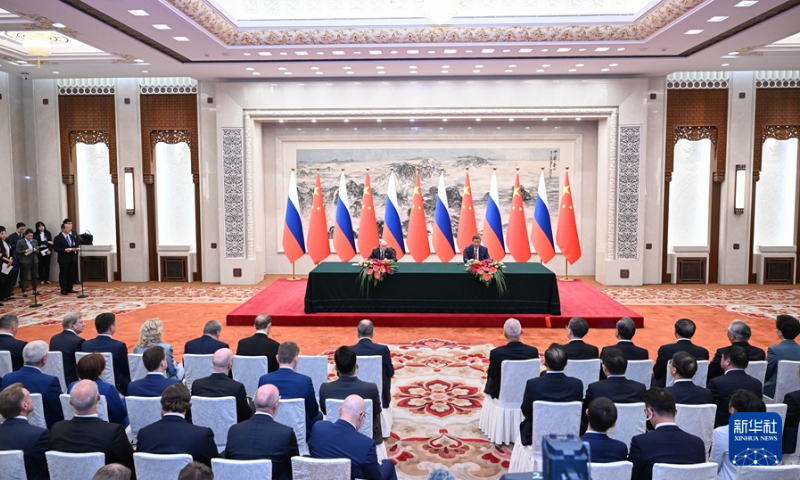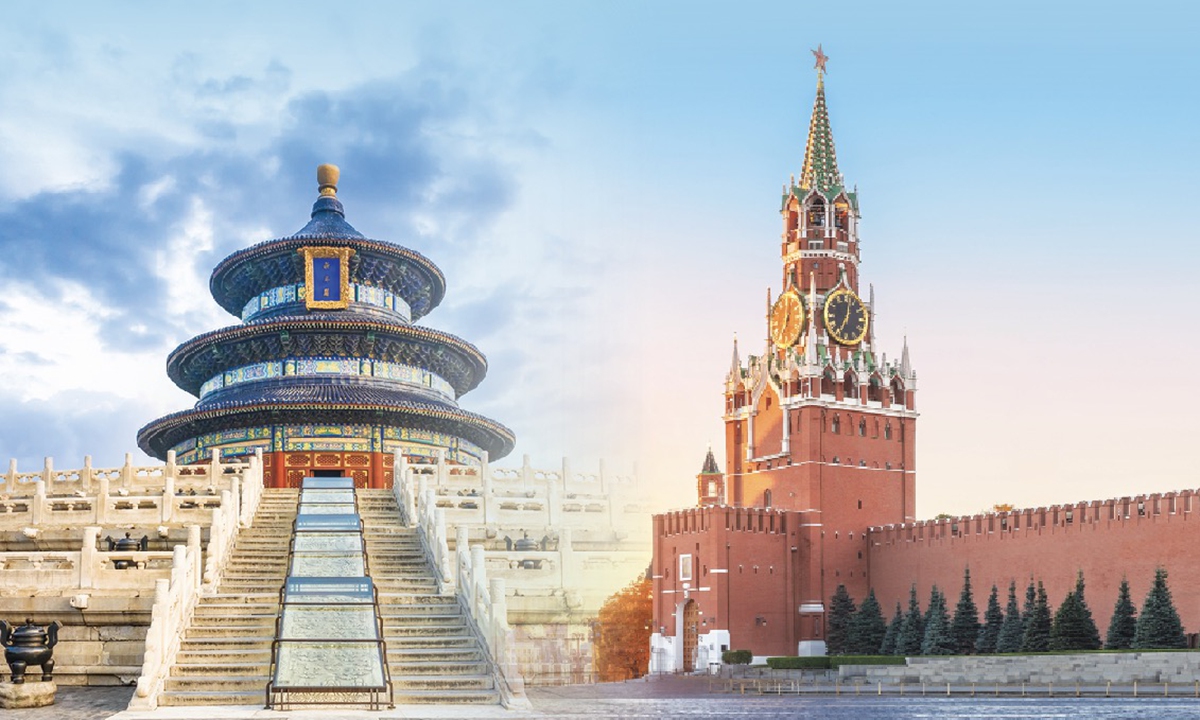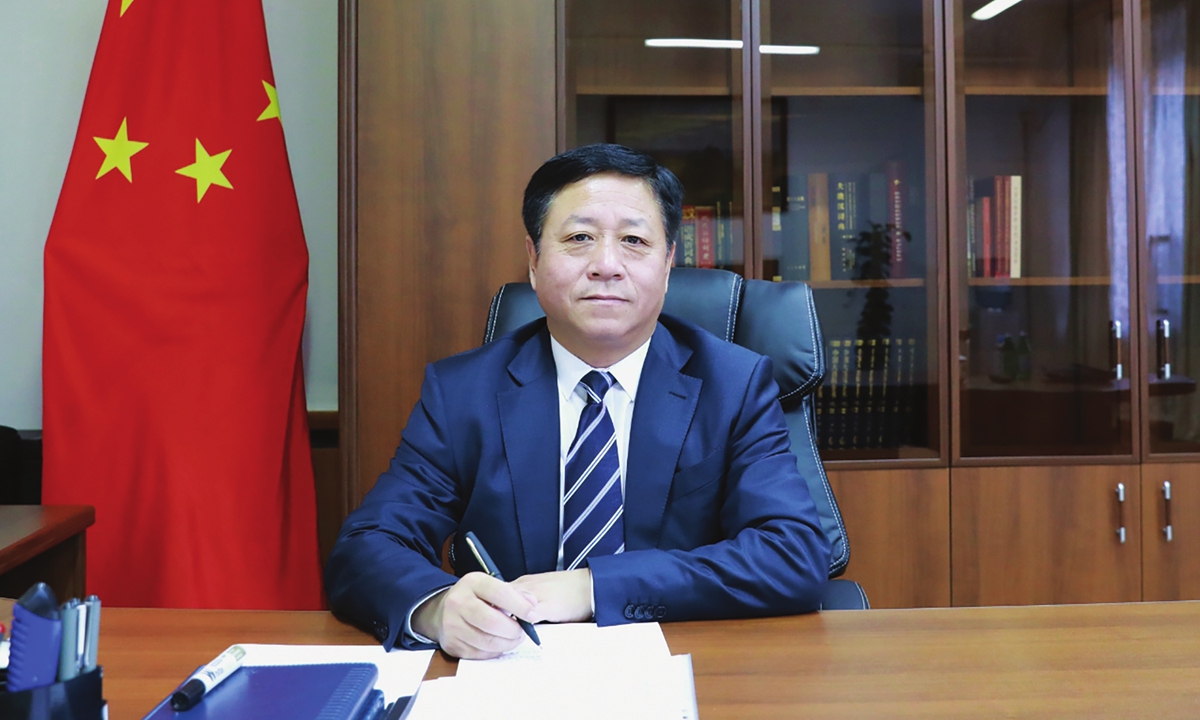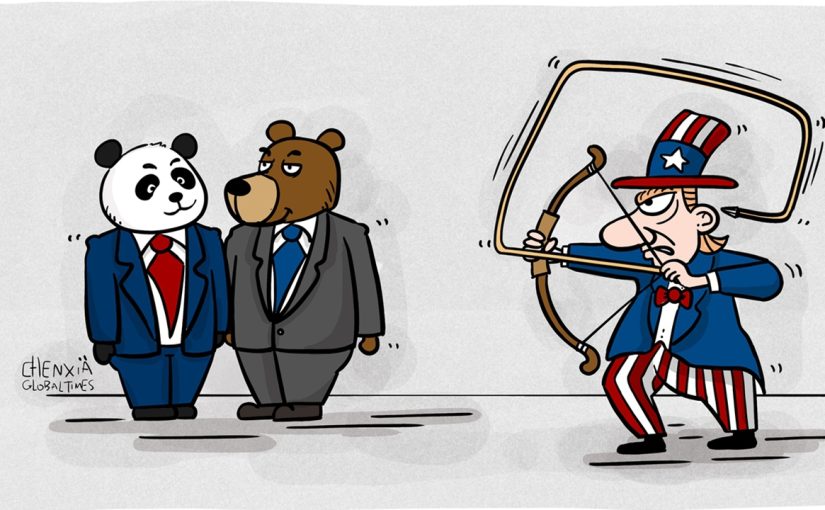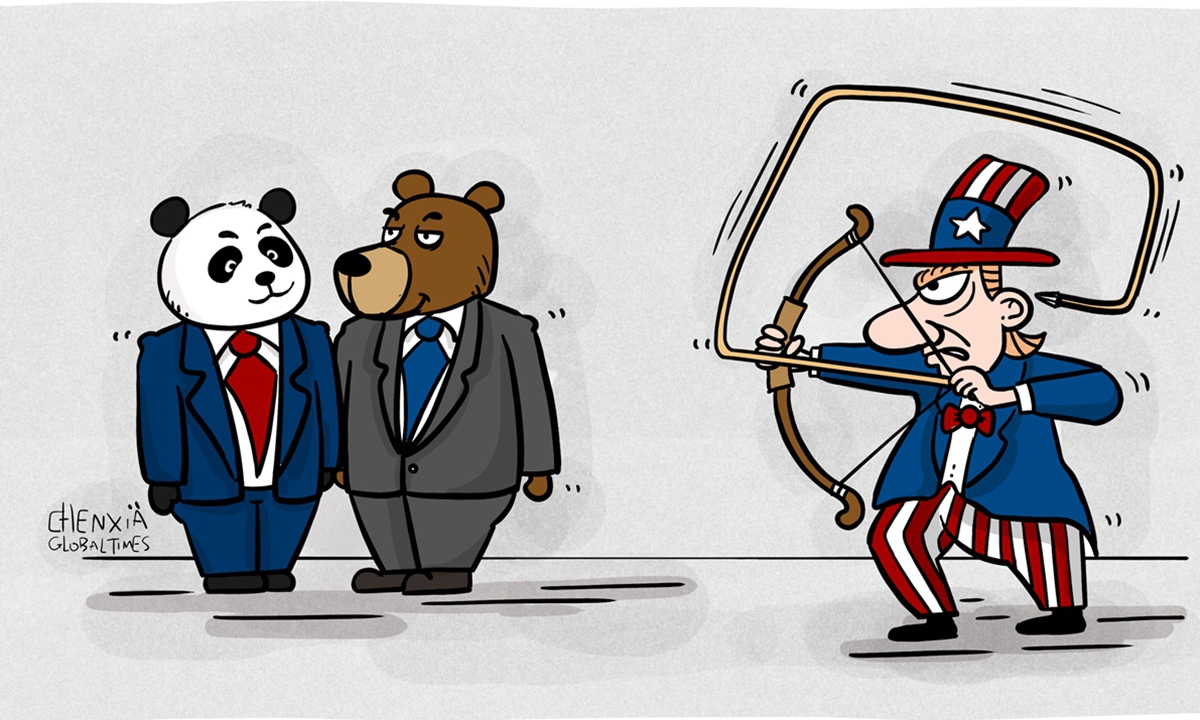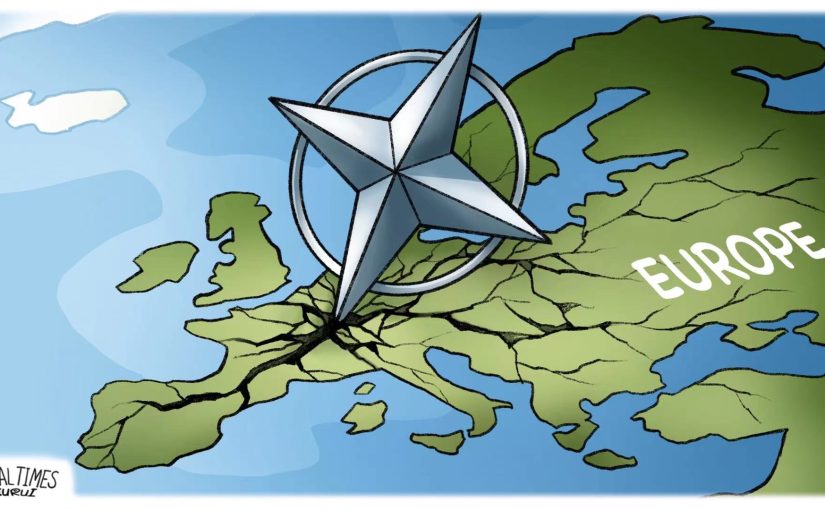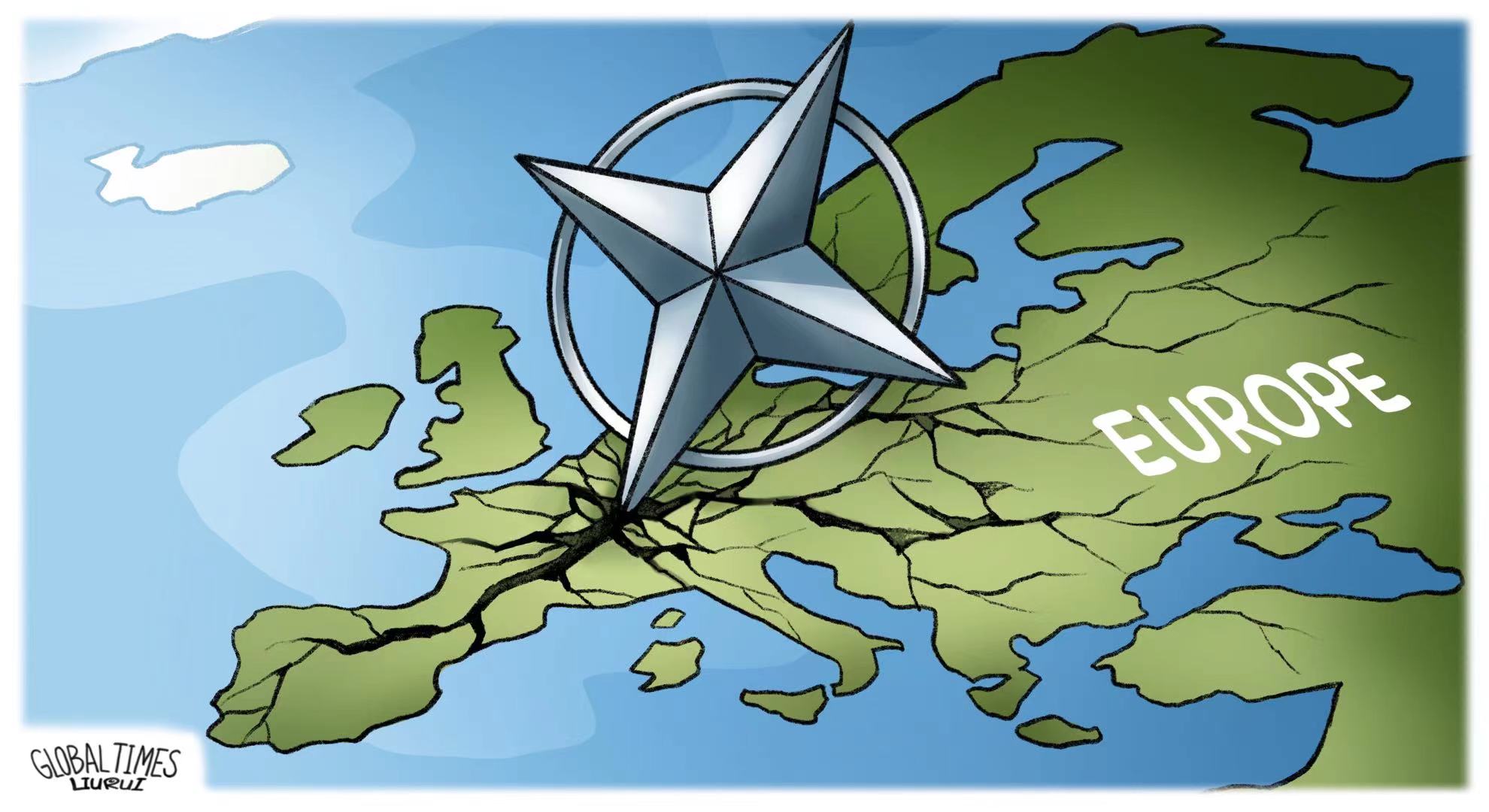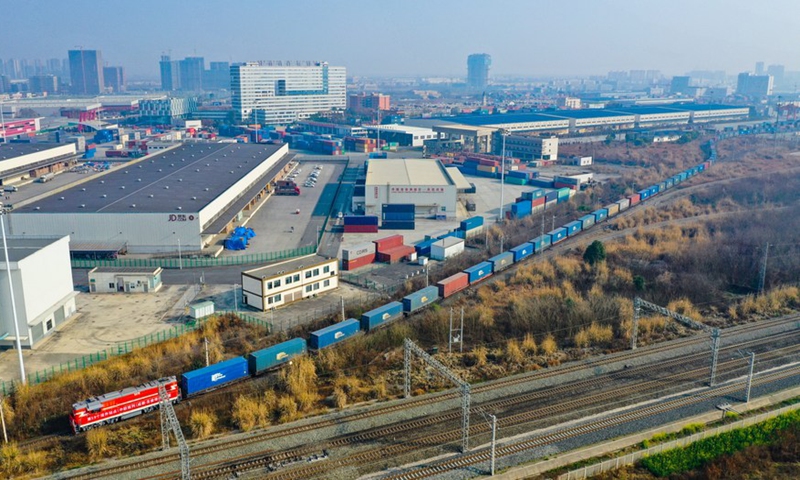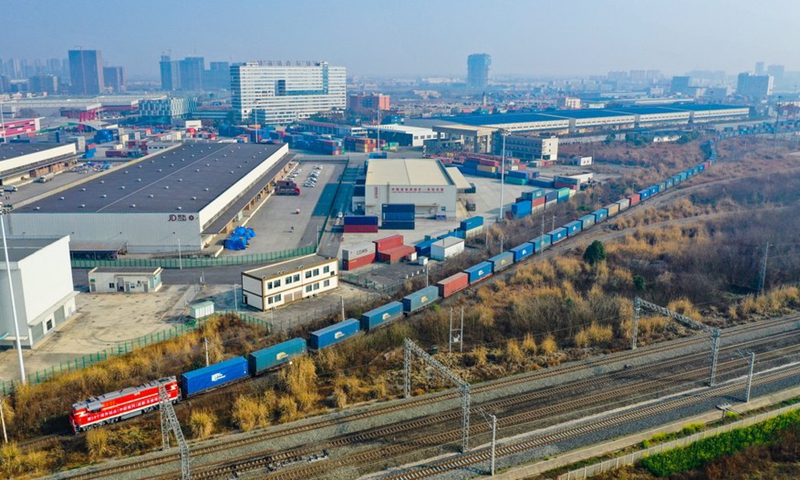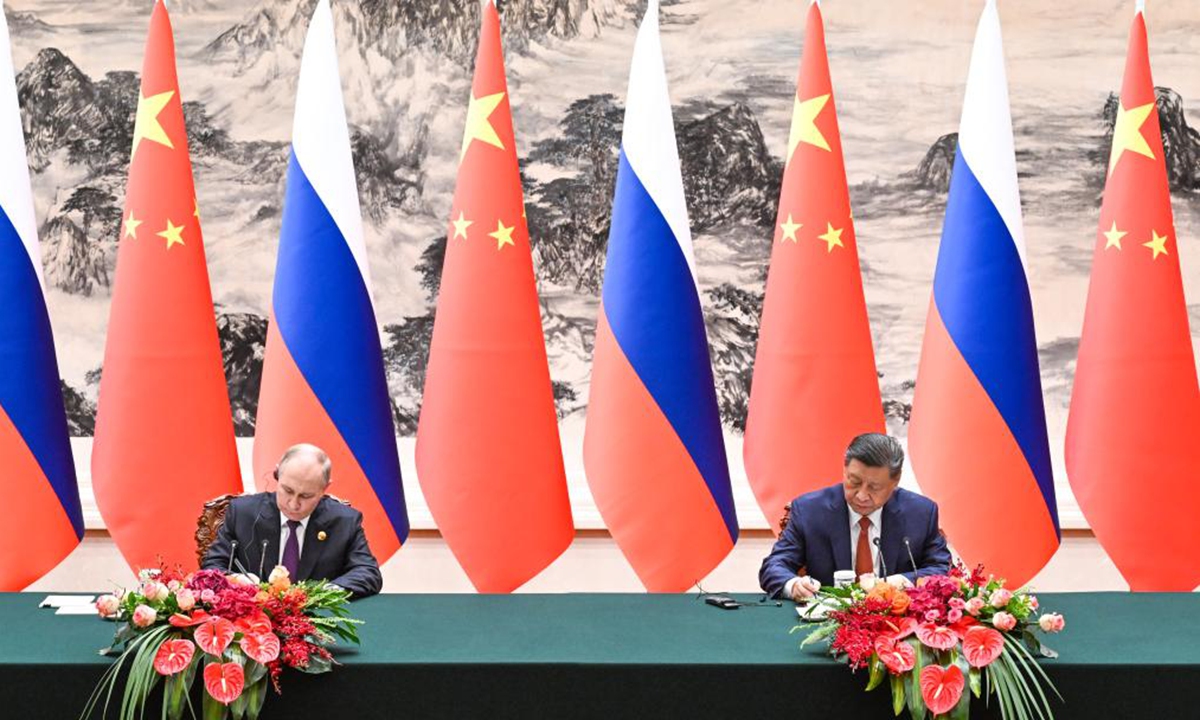
Chinese President Xi Jinping and Russian President Vladimir Putin sign and issue a joint statement on deepening China-Russia comprehensive strategic partnership of coordination for a new era on the occasion of the 75th anniversary of the establishment of diplomatic ties between the two countries after their talks in Beijing, capital of China, May 16, 2024. Xi held talks with Putin, who is in China on a state visit, at the Great Hall of the People in Beijing on Thursday.Photo: Xinhua
Russian President Vladimir Putin concluded a two-day state visit to China. The Chinese Ministry of Foreign Affairs described President Putin’s visit as “importantly timed and fruitful.” The two heads of state signed and issued a joint statement on deepening China-Russia comprehensive strategic partnership of coordination for a new era on the occasion of the 75th anniversary of the establishment of diplomatic ties between the two countries (hereinafter referred to as the joint statement). The joint statement is over 12,000 words long, with the word “cooperation” appearing over 130 times.
Currently, China-Russia relations are at their best in history, and this year marks a milestone in the development of relations between the two countries. Looking back, pragmatic cooperation between China and Russia has a solid foundation and strong internal impetus, ensuring economic and social common development and integration of both countries. Looking forward, pragmatic cooperation between China and Russia is an important guarantee for tapping the development potential of both sides and exploring long-term autonomous development. Clearly, the development of relations between the two countries is not a temporary expedient but has strong internal impetus and intrinsic value.
The rich connotation of China-Russia cooperation will continue to be enriched and elevated, and this is highly certain. For example, in terms of economic and trade cooperation, the trade of traditional labor-intensive, low-value-added electromechanical products used to be the mainstream of China-Russia economic and trade cooperation. However, in recent years, high-value-added products represented by automobiles and engineering machinery have developed rapidly. In 2023, Russia became the top destination for Chinese automobile exports, with over 900,000 vehicles exported to Russia. Additionally, many Chinese brands of mobile phones, home appliances, engineering machinery and other products are gaining increasing recognition and popularity in the Russian market. With their high quality, durability, and cost-effectiveness, they are increasingly favored by Russian consumers.
Based on mutual benefit, China and Russia continue to advance practical cooperation, benefiting the people of both countries. Maintaining a solid foundation in traditional areas such as economic and trade, energy, and agriculture is an important basis for maintaining good momentum in cooperation. Cooperation projects in these areas are also important starting points for deepening future development. For example, in agriculture, China and Russia have highly complementary advantages. If the coordination efforts in standards certification, technical specifications, and other areas of bilateral agricultural product trade continue to increase, it will lay the foundation for the development of the China-Russia agricultural cooperation experimental demonstration zone proposed in the joint statement.
At the same time, new areas such as artificial intelligence, high-tech, and basic research are also realistic choices for cooperation between the two sides. Especially in the context of the continuous impact of anti-globalization trends such as “decoupling” and “small yard, high fence,” deepening practical cooperation in the new era between China and Russia will help counter external obstacles and restrictions on the technological development space of both countries, ensuring the high-level development of technology on both sides. More importantly, unleashing the potential for cooperation in cutting-edge areas will help both countries grasp the future development trend. Therefore, the strategic cooperation between China and Russia is a proactive effort rather than a passive response.
In particular, with the deepening of the new round of technological revolution and industrial transformation, international cutting-edge technological development presents the characteristics of multiple breakthroughs and intersections in various fields. China’s technology and industry are rapidly upgrading, with the obvious feature of the “engineer dividend,” and the scale and intensity of basic research and development investment are continuously increasing. In the international cutting-edge technological competition, China is gradually shifting from “following” to “keeping pace” and even “leading” in some areas. This means that through cooperation with Russia in new fields, bilateral technological mutual benefit development can be effectively promoted, helping Chinese technology research and development expand into more application scenarios, benefiting both sides’ enterprises and people, promoting bilateral and even regional technological standards and norms interoperability, and jointly catching up with or even leading the future trend of cutting-edge development.
The current period is an important window for practical economic and trade cooperation between China and Russia, and the two sides’ connections in politics, economy, technology, and culture will continue to be strengthened. This will not only help promote bilateral economic development and stimulate growth potential, but also promote regional peace, stability, and prosperity, sharing the dividends of each other’s development, gradually realizing global economic recovery and development, and making greater contributions to promoting inclusive and beneficial economic globalization. As President Xi Jinping said, steady development of China-Russia relations is not only in the fundamental interests of the two countries and the two peoples, but also conducive to peace, stability and prosperity of the region and the world at large.


 Svetlana Zakharova in
Svetlana Zakharova in 
